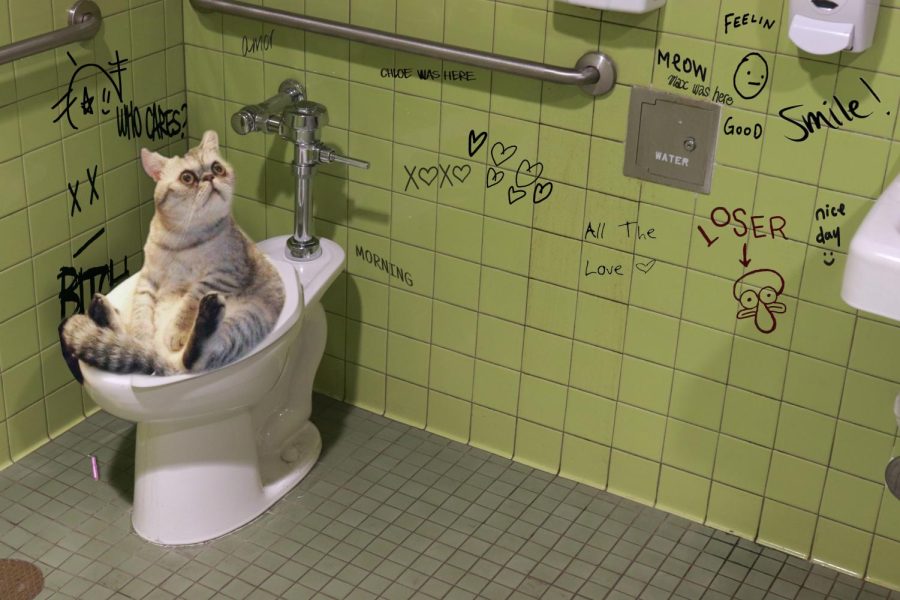Don't Flush Cat Poop Down Your Toilet - Preserve Your House's Plumbing System
Don't Flush Cat Poop Down Your Toilet - Preserve Your House's Plumbing System
Blog Article
The article following next in relation to Can You Flush Cat Poo or Litter Down the Toilet? is quite remarkable. Don't miss it.

Introduction
As cat owners, it's vital to bear in mind just how we throw away our feline friends' waste. While it might appear hassle-free to purge cat poop down the toilet, this practice can have detrimental effects for both the setting and human health.
Alternatives to Flushing
The good news is, there are safer and a lot more liable ways to throw away cat poop. Think about the complying with choices:
1. Scoop and Dispose in Trash
One of the most common method of taking care of cat poop is to scoop it into a biodegradable bag and throw it in the trash. Make certain to make use of a dedicated litter scoop and dispose of the waste promptly.
2. Use Biodegradable Litter
Opt for biodegradable pet cat litter made from products such as corn or wheat. These clutters are eco-friendly and can be safely gotten rid of in the trash.
3. Hide in the Yard
If you have a lawn, think about burying cat waste in a marked location away from veggie gardens and water sources. Make sure to dig deep adequate to prevent contamination of groundwater.
4. Set Up a Pet Waste Disposal System
Purchase a family pet waste disposal system especially made for cat waste. These systems make use of enzymes to break down the waste, reducing smell and environmental influence.
Health Risks
Along with ecological concerns, purging feline waste can also posture health risks to human beings. Pet cat feces might include Toxoplasma gondii, a bloodsucker that can cause toxoplasmosis-- a potentially severe health problem, particularly for expectant females and individuals with damaged immune systems.
Environmental Impact
Flushing cat poop introduces harmful microorganisms and bloodsuckers into the supply of water, posing a substantial danger to aquatic environments. These pollutants can adversely impact marine life and compromise water quality.
Conclusion
Accountable animal ownership prolongs past providing food and shelter-- it likewise entails correct waste administration. By refraining from purging pet cat poop down the bathroom and selecting different disposal methods, we can minimize our environmental impact and shield human wellness.
Why Can’t I Flush Cat Poop?
It Spreads a Parasite
Cats are frequently infected with a parasite called toxoplasma gondii. The parasite causes an infection called toxoplasmosis. It is usually harmless to cats. The parasite only uses cat poop as a host for its eggs. Otherwise, the cat’s immune system usually keeps the infection at low enough levels to maintain its own health. But it does not stop the develop of eggs. These eggs are tiny and surprisingly tough. They may survive for a year before they begin to grow. But that’s the problem.
Our wastewater system is not designed to deal with toxoplasmosis eggs. Instead, most eggs will flush from your toilet into sewers and wastewater management plants. After the sewage is treated for many other harmful things in it, it is typically released into local rivers, lakes, or oceans. Here, the toxoplasmosis eggs can find new hosts, including starfish, crabs, otters, and many other wildlife. For many, this is a significant risk to their health. Toxoplasmosis can also end up infecting water sources that are important for agriculture, which means our deer, pigs, and sheep can get infected too.
Is There Risk to Humans?
There can be a risk to human life from flushing cat poop down the toilet. If you do so, the parasites from your cat’s poop can end up in shellfish, game animals, or livestock. If this meat is then served raw or undercooked, the people who eat it can get sick.
In fact, according to the CDC, 40 million people in the United States are infected with toxoplasma gondii. They get it from exposure to infected seafood, or from some kind of cat poop contamination, like drinking from a stream that is contaminated or touching anything that has come into contact with cat poop. That includes just cleaning a cat litter box.
Most people who get infected with these parasites will not develop any symptoms. However, for pregnant women or for those with compromised immune systems, the parasite can cause severe health problems.
How to Handle Cat Poop
The best way to handle cat poop is actually to clean the box more often. The eggs that the parasite sheds will not become active until one to five days after the cat poops. That means that if you clean daily, you’re much less likely to come into direct contact with infectious eggs.
That said, always dispose of cat poop in the garbage and not down the toilet. Wash your hands before and after you clean the litter box, and bring the bag of poop right outside to your garbage bins.
https://trenchlesssolutionsusa.com/why-cant-i-flush-cat-poop/

Hopefully you liked our article about Don’t flush cat feces down the toilet. Many thanks for taking the time to read our post. Enjoyed reading our blog entry? Please share it. Help others check it out. Thanks for taking the time to read it.
Visit Site Report this page